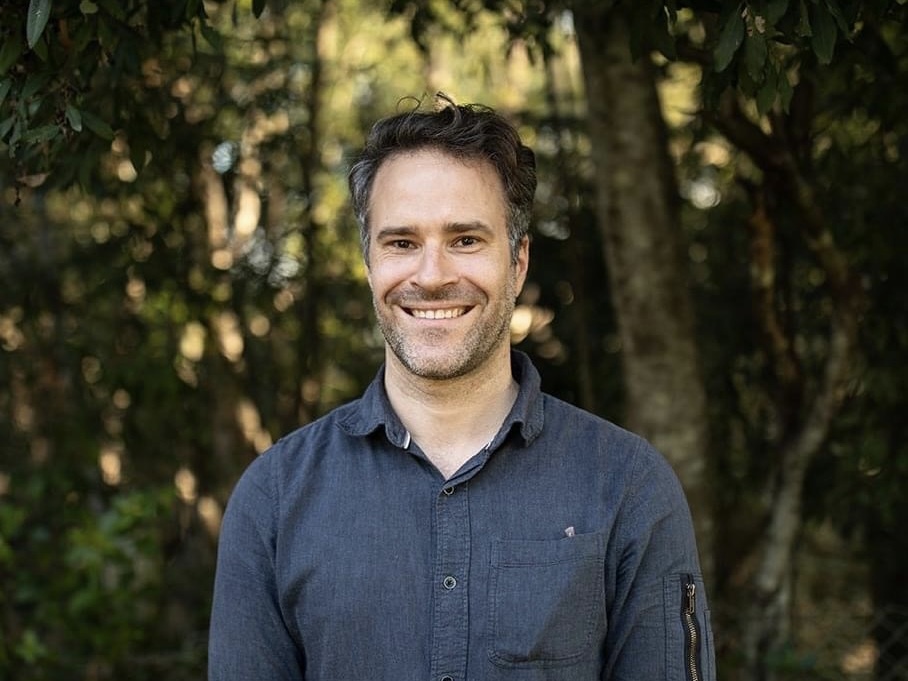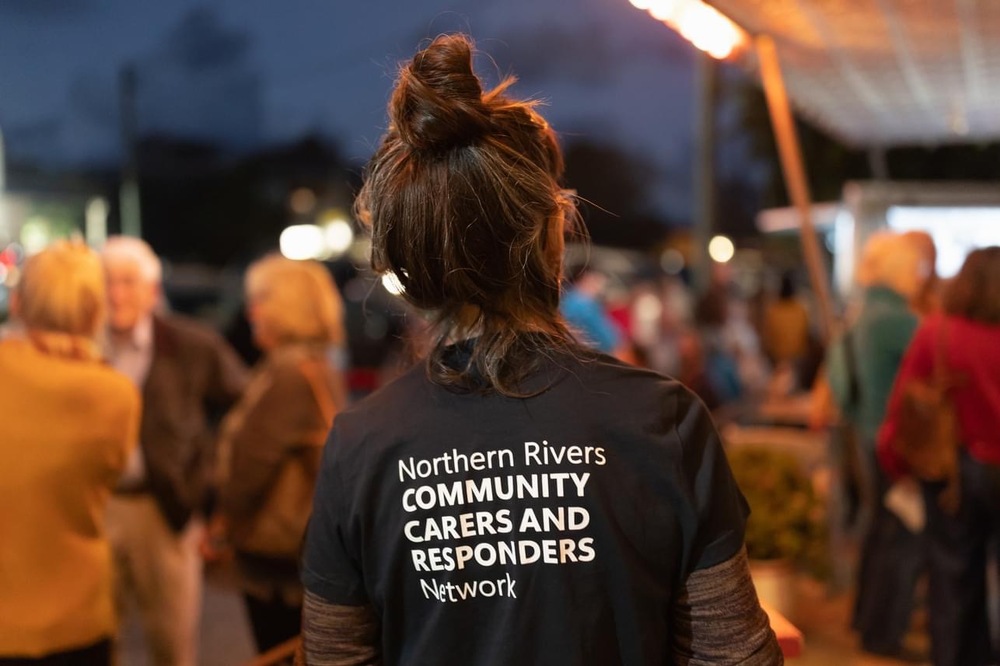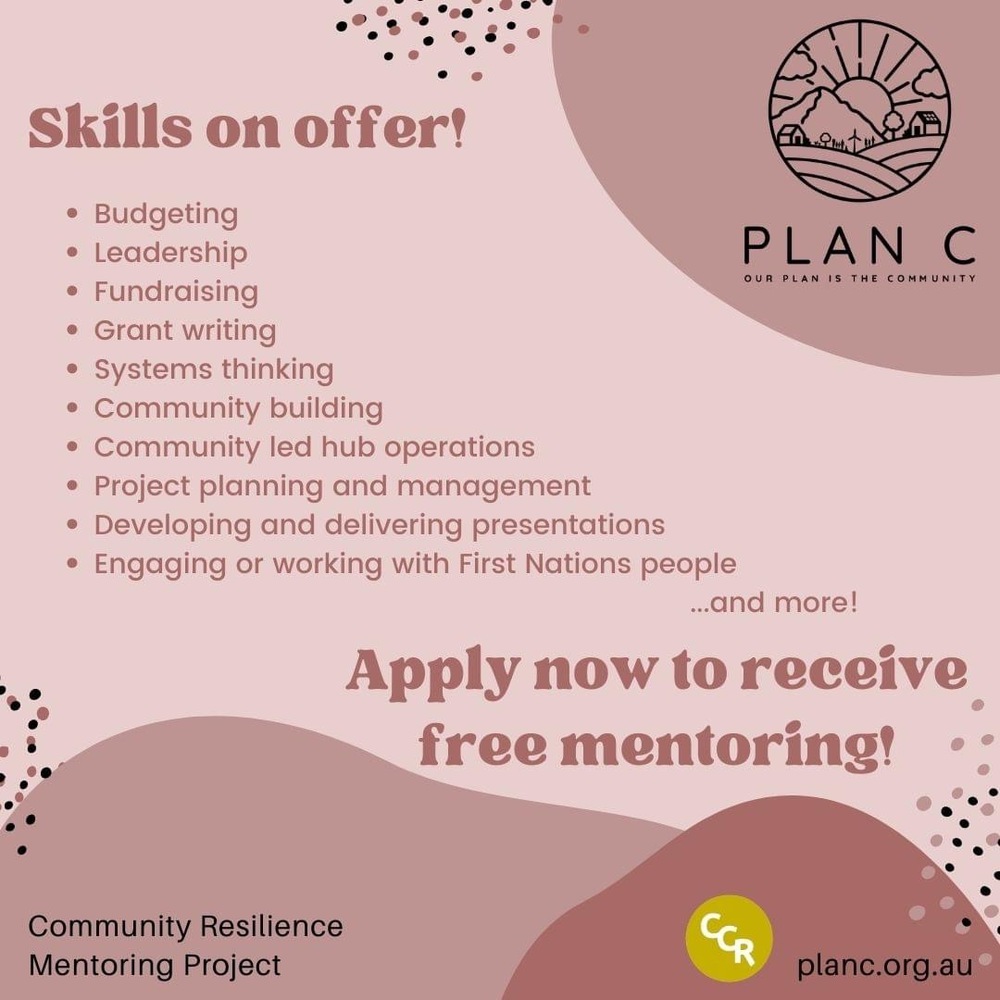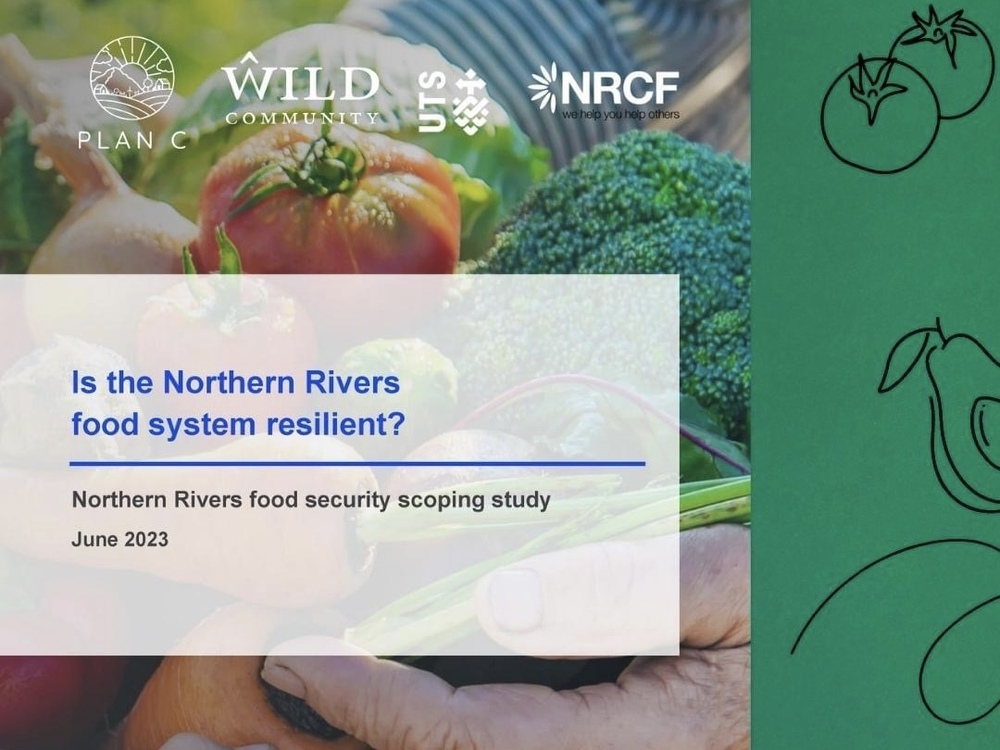Plan C - strengthening communities through free resilience education
Lara Bell
19 August 2023, 9:02 PM

Plan C is a local not-for-profit that is striving to make a real difference in the Northern Rivers when it comes to crisis response and disaster preparedness.
Plan C's tagline - 'Our Plan is the Community,' reflects their goal of building connected and resilient communities that can better face future disasters.
The first of Plan C’s three focuses is their CCR (Community Carers and Responders) network. It is growing rapidly, with 223 people already completing the free training program and joining the network across the Northern Rivers.
The Lismore App spoke to Plan C's founder Jean Renouf (a Lismore resident), who said of their CCR program, "I think it's worthwhile emphasising that it's a network. The training is just the beginning. Really, it has four steps."

(Plan Cs Founder Jean Renouf)
First Step - Training:
CCRs receive five days of free training, including a day of first aid and psychological first aid. Plan C can offer all this valuable training completely free to participants thanks to secured grants and private donations.
"During this, we look at a number of hard and soft skills including disaster recovery, non-violent communication, working with emergency services, food security, water security, energy security, disaster resilience looking at bushfires, floods, heatwaves," Jean said.
Second step - community projects:
Upon graduation, participants receive a CCR cap, t-shirt and solid first-aid kit and are then invited to engage with or lead a project that builds the resilience of their community.

"At the moment, we have 223 people that have been through the CCR training, and out of that amount, we have 68 who are leading a project across the Northern Rivers. And it can be, depending on people's capacity, a small project such as simply gathering the neighbours together in the street, or it can be something much bigger."
Third step - mentoring:
Plan C also offers one-on-one mentoring to help CCRs get their community project ideas off the ground.
"For example, at the moment, I am mentoring three CCRs in Bangalow, and together we have organised a number of community meetings bringing together CWA, the Police and other local associations together to make a community disaster plan. I'm doing the same in Mullumbimby and across the Northern Rivers. We are supporting all sorts of different activities in this way."
Fourth Step - CCR events and workshops:
CCRs are regularly invited to additional workshops, community events, and field visits to deepen their knowledge and also their connections with each other. To date, workshops have been offered on different topics such as grant writing, trauma healing, art therapy and resilient flood design for homes.
Jean also shared that "at the moment, we are delivering a series of four workshops in partnership with Brunswick Valley Landcare to help participants know what sort of plants they can grow around their houses and properties to make them more flood/bushfire/heatwave resilient. It's delivered in different locations based on local climate - riverina/coastal/hinterland. The purpose of these workshops is to bring the CCR together so they can know each other better, develop connections, learn from each other."

The CCR Network are also actively contributing to different community resilience networks in the region led by councils.
"We have SES volunteers, RFS volunteers, and council volunteer staff members as part of our CCR network. We have so much diversity of crew - we have young to old, women, men, people of diverse abilities, we have sex workers, indigenous people… it's quite diverse, and it's very much on purpose."
However, the network is still very adult-centric, so Plan C is currently developing a new project called The Young CCR that tailors the content and delivery of the CCR program to youth to meet their particular needs and constraints. Jean informs, "We currently have a pilot program with eight young CCRs, but if people want to donate to us, we can deliver it widely across the region."
The Lismore App asked Jean about his background and why he is passionate about offering this program to the Northern Rivers. Before working as a lecturer at Southern Cross University, which Jean has now given up to pour his time and love into Plan C, he was an international aid worker. He spent 15 years in different war zones and disaster zones in Afghanistan, Iraq, Congo, North Korea, Yemen, Palestine, Central African Republic and more.
"This, coupled with my understanding of climate science as an academic and also as a firefighter with fire and rescue New South Wales, made me realise a few years ago that essentially the Northern Rivers were not ready (for disaster)… So that's why I founded Plan C - to help up-skill and connect community members, which is the cornerstone of resilience."
"Also, I'm a dad of two young boys, and you know, when climate scientists tell us about what the world may look like by 2050 or 2100, I'm acutely aware of what it means to them and where we're heading. And therefore, I'm driven because if anything, this is the single best outcome - to give them a sense of community, a sense of hope, active hope that despite the many challenges that we have facing ahead of us, we can still go through this together."
"It's not just about disasters like floods, bushfires, cyclones. It's also about crisis, if you think about, say, Covid or the rising cost of life, the housing crisis, the mental health crisis, the epidemics of loneliness that are hammering our communities, coming together and building a community safety net across the northern rivers is absolutely essential for our common well-being. What emerges is not just those connections and the feeling that someone can hold you and you can hold others.
It's also the practical stuff emerging from it. So many people start exchanging food and resources and knowledge and skills and housing and communication. And it's like, Wow, we are actually building a resilience, you know?"
Sahba, a local who has completed the CCR training, has this to say about it;
"I love the CCR Program! It helped me learn details about the practical ways I can make my house more resilient to floods and fires. It's also given me helpful tips for food and energy security. I've made many changes in my home. It's also encouraged me and helped me develop a plan for how to connect and communicate with my neighbours so we can all support each other not only in times of crisis but in times of peace too."
"I learnt more about the emergency services and the role they play. Most importantly and valuable for me has been the connections and networks made with other CCRs across the Northern Rivers, friendships with inspiring people doing amazing projects."
Public Events
In addition to the CCR program, Plan C is offering the Northern Rivers community a range of Public Events titled "Facing Up - how do we live in the midst of the climate and ecological crises?". These events are presented by speakers from different backgrounds to help us think through the big questions and have conversations around them. The most recent event was held two weeks ago in Lismore, where speakers were locals Elly Bird, Sue Higginson and Ruth Rosenhek.
Food Security
And lastly, Plan C has a particular focus on addressing food security in the region. They have recently released a research report in partnership with the University of Technology, Sydney, detailing food security (or lack of!) in the Northern Rivers.
"You probably remember how the shelves were empty in supermarkets after the floods", Jean said. "There are reasons for it, and there are a number of things we can do to prevent that happening next time. We are going to apply for grants to start some projects on this front to improve our food security."
The next round of CCR training for Lismore commences in October. You can register your interest by visiting https://www.ccrnetwork.org. You can also visit the site to make a donation to help Plan C continue to deliver its incredible programs to the community.


